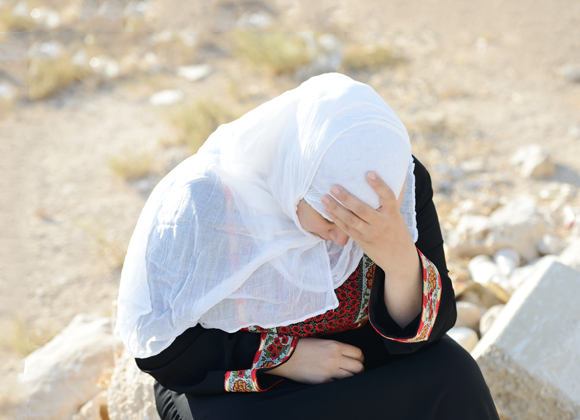
There are many forms and types of good deeds and acts of obedience that are greatly rewarded by Allaah (![]() ) in this life and in the hereafter.
) in this life and in the hereafter.
“Whoever does righteousness, whether male or female, while he is a believer, We will surely cause him to live a good life, and We will surely give them their reward [in the Hereafter] according to the best of what they used to do.” (An-Nahl, 16:97)
Thus it is important to continue doing righteous deeds and always be aware not to be taken away by the surprise of death while doing a sin.
Praise be to Allah. Ramadan has just passed so quickly. Such a great month of the year. It is no secret to Muslims that it is a month to perform increased good and righteous deeds, in an attempt to get closer to Allaah (![]() ), praying for our deeds to be accepted and our sins to be forgiven.
), praying for our deeds to be accepted and our sins to be forgiven.
Scholars of Islam unanimously agree that a Muslim receives signs after the passing of Ramadan which indicates the acceptance of their righteous deeds during the blessed month. One of those main signs is the ability to continue doing righteous deeds and increasing acts of worship that brings them closer to Allaah (![]() ), and one of those righteous deeds is the act of fasting six days during the following month of Ramadan, the month of Shawwal, which is a pleasant Sunnah that has a great reward.
), and one of those righteous deeds is the act of fasting six days during the following month of Ramadan, the month of Shawwal, which is a pleasant Sunnah that has a great reward.
Abu Aiyub Al-Ansari (![]() ) narrated that The Messenger of Allah (
) narrated that The Messenger of Allah (![]() ) said:
) said:
“Whoever fasts during the month of Ramadan and then follows it with six days of Shawwal will be rewarded as if he had fasted the entire year.” 1
Of course, it is allowed to fast the six days separately throughout the month of Shawwal, but one must first compensate the fasting of the days that they have broken fast with during the month of Ramadan, which is due to the various reasons and excuses one might have gone through in Ramadan, from sickness, travel or menses.
The virtue of being rewarded the fasting of the entire year comes with the condition of fulfilling the fasting of Ramadan fully, and then followed by six days of Shawwal, and that is because fasting Ramadan is an obligatory act while the six days of Shawwal are a Sunnah act, and obligatory acts have the priority to being accomplished first.
Many important benefits can come from fasting the six days of Shawwal, as it can be considered compensation for any shortcomings that occurred during the obligatory fasting of Ramadan. We all know that we are not immune against sins or shortcomings that can affect our fasts negatively, but praise be to Allaah, on judgment day, voluntary acts complete any shortage that might exist in our obligatory acts.
The proof for this can be found in the hadeeth of our prophet (![]() ) saying,
) saying,
“The first thing about which the people will be called to account out of their actions on the Day of Judgment is prayer. Our Lord, the Exalted, will say to the angels though He knows all: “Look into the prayer of My servant and see whether he has offered it perfectly or imperfectly. If it is perfect, that will be recorded perfect.”
If it is defective, He will say: “See there are some optional prayers offered by My servant.” If there are optional prayers to his credit, He will say: “Compensate the obligatory prayer by the optional prayer for My servant. Then all the actions will be considered similarly.” 2
Aside from the fact that it is another opportunity to follow a great Sunnah done by the prophet (![]() ) himself, it is a resumption of righteous deeds after finishing from previous righteous deeds, and this is considered a strong primary indicator of the acceptance of the previous righteous deed of fasting the month of Ramadan, where Allaah (
) himself, it is a resumption of righteous deeds after finishing from previous righteous deeds, and this is considered a strong primary indicator of the acceptance of the previous righteous deed of fasting the month of Ramadan, where Allaah (![]() ) has facilitated to His servants the continuation of His obedience afterward.
) has facilitated to His servants the continuation of His obedience afterward.
Also, fasting the six days of Shawwal is considered as giving thanks to Allaah for the blessings and favors of accomplishing the month of fasting, aside from being considered as fasting the entire year, as mentioned earlier in the Hadeeth, it is a way to seek the love of Allaah (![]() ) and his messenger (
) and his messenger (![]() ).
).
Sheikh Ibn Othaimeen (May Allah have mercy on his soul) was once asked, “If a woman still has some days to compensate breaking her fast in Ramadan, is it allowed for her to fast the six days of Shawwal first and then to fast the days she needs to compensate from Ramadan?”
He answered, “If a woman needs to compensate days from Ramadan, she does not fast the six days of Shawwal except after completing her compensation days, and that is because the prophet (![]() ) said, “Whoever fasts during the month of Ramadan and then follows it with six days…”. The one who must compensate days from Ramadan cannot receive the reward of fasting the six days except after finishing from the compensation, but if we assumed that the compensation days absorbed all the days of Shawwal, such as a woman in her postpartum period, and was not able to fast any day in Ramadan, then proceeded compensation of fasting in the month of Shawwal and was not able to finish except after entering the following month of Dhul-Qadah, then she can fast the six days during that month and she will still be rewarded fasting the six days of Shawwal, because her delay in fasting was for a necessity.”
) said, “Whoever fasts during the month of Ramadan and then follows it with six days…”. The one who must compensate days from Ramadan cannot receive the reward of fasting the six days except after finishing from the compensation, but if we assumed that the compensation days absorbed all the days of Shawwal, such as a woman in her postpartum period, and was not able to fast any day in Ramadan, then proceeded compensation of fasting in the month of Shawwal and was not able to finish except after entering the following month of Dhul-Qadah, then she can fast the six days during that month and she will still be rewarded fasting the six days of Shawwal, because her delay in fasting was for a necessity.”
We are in need of giving continuous thanks to Allaah (![]() ) for each blessing that comes upon us, whether it was in our religion or towards our life matters, because for Allaah (
) for each blessing that comes upon us, whether it was in our religion or towards our life matters, because for Allaah (![]() ) to facilitate for us further blessings requires us to give further thanks and praise to Him. Thus the reality of giving thanks and praise to Allaah (
) to facilitate for us further blessings requires us to give further thanks and praise to Him. Thus the reality of giving thanks and praise to Allaah (![]() ) is to admit and acknowledge that we are unable to give enough thanks to Allah and are grateful for the uncountable blessings and favors He brings onto us. Fasting six days from Shawwal is one of those blessings bestowed to us after the month of Ramadan where Allaah (
) is to admit and acknowledge that we are unable to give enough thanks to Allah and are grateful for the uncountable blessings and favors He brings onto us. Fasting six days from Shawwal is one of those blessings bestowed to us after the month of Ramadan where Allaah (![]() ) increases our rewards with uncountable blessings.
) increases our rewards with uncountable blessings.
I pray that Allaah keeps us steadfast with increased faith and righteous deeds. I pray that He provides us all a good life and make us join His righteous servants. O Allaah, accept from us our deeds, you are the All-hearing and All-knowing, and forgive our sins and all the sins of Muslims.








3 replies on “Fasting the entire year”
Really a blessed month, this Ramadhan, that I’ m starting to miss. The entire month, I spent in the Holy city of Madinah and Makkah was very fruitfull not missing the taraweh prayers and the last 10 days tahajjud prayers at tha Holy Masjid Al Haram, and reading the Holy Quran every now and then seeking the pleasure of Allah swt, and his forgiveness. May all my good deeds and duas be accepted.
JAZAA KAL LAHU KHAIRAN
JazakAllah Khair … A very informative post and a beautiful reminder.